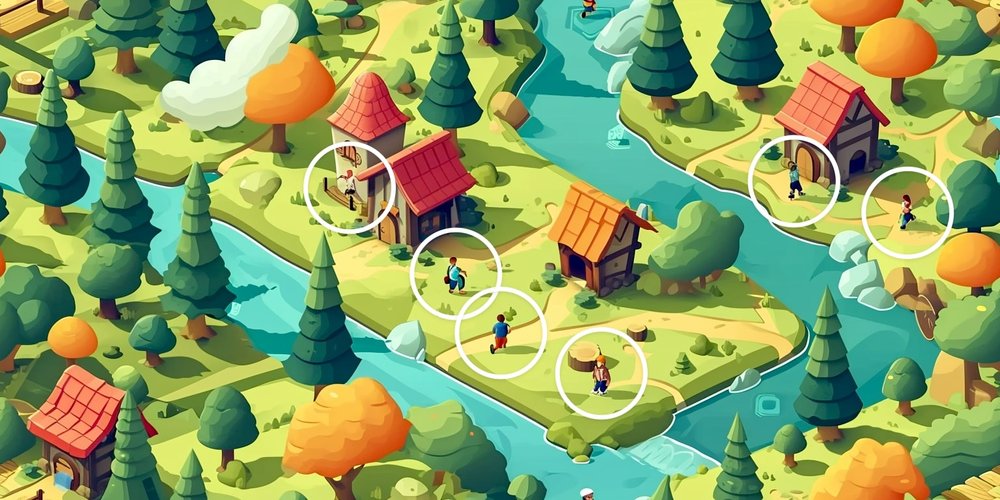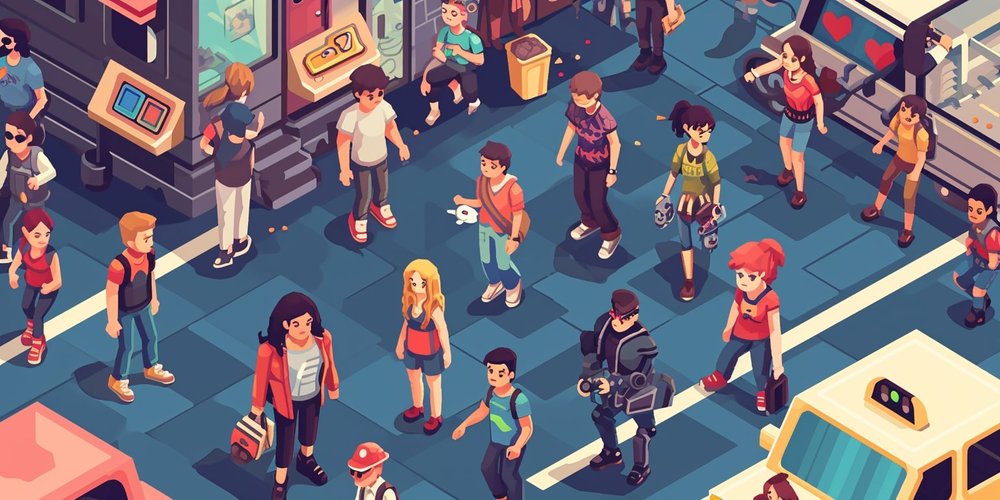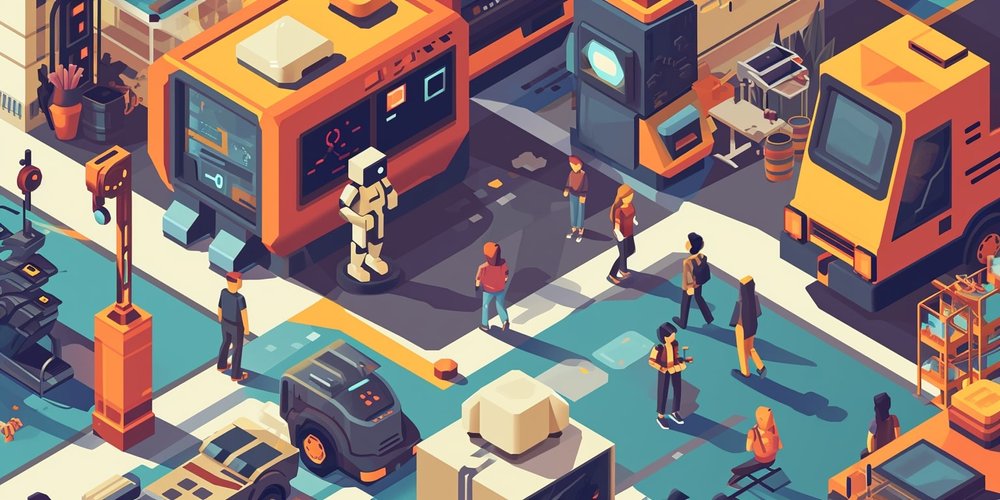An NPC, or Non-Player Character, is a term used primarily in the context of video games and tabletop role-playing games.

First, what is an NPC?
An NPC, or Non-Player Character, is a term used primarily in the context of video games and tabletop role-playing games. It refers to characters that are not controlled by players but by the game system or game master. NPCs are used to populate the game world, providing depth and interaction opportunities for player characters. They can range from simple background characters to complex individuals with their own stories, motivations, and roles in the game's narrative. NPCs are a key element in creating a rich, immersive game experience, as they help to establish the setting, advance the plot, and offer challenges or assistance to the players.
How can NPCs enhance the gaming experience in open-world games?

Non-player characters (NPCs) play a crucial role in enhancing the gaming experience, especially in open-world games. Here are several ways they contribute:
Storytelling and Plot Development: NPCs are essential for unfolding the game's narrative. They provide quests, share information, and contribute to the overall storyline. In open-world games, where players have the freedom to explore, NPCs help guide the player through the main plot or offering side stories that enrich the game world.
World Building and Immersion: NPCs add life and realism to the game world. They populate cities, towns, and other environments, making the world feel lived-in and dynamic. Their daily routines, conversations, and reactions to player actions contribute to a more immersive experience.
Diverse Interactions and Gameplay Variety: NPCs offer a range of interactions, from simple trades to complex relationships. They can be allies, enemies, merchants, mentors, or neutral parties. This variety allows players to experience different aspects of the game, from combat and strategy to diplomacy and negotiation.
Emotional Engagement: Well-designed NPCs can evoke emotional responses from players. This can range from sympathy and attachment to anger and rivalry, depending on the NPC's role and interaction with the player. Emotional engagement enhances the overall gaming experience, making it more memorable and impactful.
Dynamic Challenges and Opportunities: NPCs can present challenges or aid to the player. For instance, an NPC might offer a difficult quest or become a formidable adversary. Alternatively, they could provide assistance, information, or access to resources and skills.
Replayability and Exploration: In open-world games, NPCs can be a source of new content and experiences when revisiting areas or making different choices in subsequent playthroughs. They encourage exploration and experimentation, as interactions with different NPCs can lead to varying outcomes.
Cultural and Social Depth: NPCs can represent the cultural, social, and political diversity of the game world. Through their backgrounds, beliefs, and interactions, they add depth and complexity to the game's setting.
Player Agency and Impact: The way NPCs react to and are affected by the player's actions can give a sense of agency and consequence. This can range from changing an NPC's attitude towards the player to impacting the larger game world and its story.
In summary, NPCs in open-world games contribute significantly to the depth, immersion, and richness of the gaming experience. They are integral in creating a believable, engaging, and dynamic world that responds to and evolves with the player's actions.
How were NPCs traditionally implemented, and how can AI help make them better?

Traditional Implementation of NPCs
Traditionally, NPCs in video games have been implemented using a combination of scripted behaviors and predetermined dialogue trees. Here's a brief overview of traditional NPC implementation:
Scripted Behaviors: NPCs follow pre-written scripts dictating their actions, movements, and responses. These scripts control routine activities (like walking, talking, or performing tasks) and reactions to specific player actions or game events.
Dialogue Trees: Interactions with NPCs often involve dialogue trees, where players choose from a set of predefined responses during conversations. These trees guide the flow of dialogue but are limited to the options programmed by the developers.
Finite State Machines (FSMs): Many NPCs are governed by FSMs, where their behavior changes based on predefined states (e.g., patrol, chase, attack) triggered by certain conditions (like player proximity or actions).
Hardcoded AI: The intelligence of NPCs is typically hardcoded, meaning they can only respond or behave in ways explicitly programmed by the developers. This results in predictable and sometimes repetitive patterns.
How AI Can Enhance NPCs
The integration of advanced AI technologies can significantly enhance the capabilities and realism of NPCs in games:
Dynamic and Adaptive Behavior: AI can enable NPCs to learn from interactions and adapt their behavior over time. This makes them more unpredictable and realistic, enhancing the player's experience.
Natural Language Processing (NLP): With NLP, NPCs can understand and respond to player input in more natural, varied, and context-aware ways. This leads to more immersive and interactive conversations.
Procedural Content Generation: AI can be used to dynamically generate unique NPC characteristics, dialogues, and behaviors. This adds variety and reduces the repetitiveness often seen in traditional NPC design.
Improved Decision-Making: AI-driven NPCs can make more complex and realistic decisions. This is particularly useful in strategy games or simulations where NPC actions can significantly impact the game world.
Emotional Intelligence and Facial Recognition: AI can be used to create NPCs that recognize and respond to player emotions or expressions, either through text or via camera-based facial recognition.
Learning from Player Interactions: AI-enabled NPCs can learn from and remember player interactions, leading to evolving relationships and personalized experiences.
Autonomous World-Building: NPCs powered by AI can independently contribute to world-building, like constructing buildings, forming communities, or evolving ecosystems based on game dynamics.
Enhanced Role in Gameplay: With advanced AI, NPCs can take on more significant roles, such as dynamic quest generation, serving as competent allies or adversaries, and providing adaptive challenges to players.
In summary, the use of AI in NPC development represents a significant leap from traditional methods, offering potential for more dynamic, responsive, and immersive gaming experiences. The integration of AI technologies can transform NPCs from static, predictable elements into dynamic, engaging characters that greatly enrich the gaming world.
The Future of NPCs

The future of NPCs in video games, driven by advanced AI technologies, heralds an era of unprecedented sophistication and enjoyment in gaming. In this future, NPCs will transcend their current roles as mere scripted elements, evolving into deeply interactive, intelligent entities capable of dynamic and adaptive behaviors. Imagine NPCs with the ability to learn from and remember player interactions, creating personalized and evolving storylines. These AI-driven characters will engage in conversations with a level of naturalness and context-awareness that rivals human interactions, thanks to sophisticated Natural Language Processing. The emotional intelligence of these NPCs will allow them to respond to player emotions and actions in nuanced ways, enhancing the emotional depth of the gaming experience. Procedural content generation will ensure that each encounter with an NPC feels unique and unpredictable, breaking the monotony of pre-scripted dialogues and actions. In strategic games, these advanced NPCs will make complex decisions, adapt strategies, and provide challenging yet fair competition to players. In essence, AI-driven NPCs will transform the gaming landscape, creating worlds that are more immersive, interactive, and responsive than ever before, making the gaming experience not just more fun, but also more meaningful and engaging.


